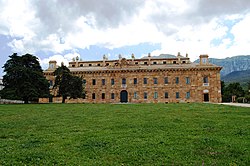
Sicily is the largest and most populous island in the Mediterranean Sea and one of the 20 regions of Italy. It is one of the five Italian autonomous regions and is officially referred to as Regione Siciliana. The island has 4.8 million inhabitants. Its capital city is Palermo. It is named after the Sicels, who inhabited the eastern part of the island during the Iron Age.

Palermo is a city in southern Italy, the capital of both the autonomous region of Sicily and the Metropolitan City of Palermo, the city's surrounding metropolitan province. The city is noted for its history, culture, architecture and gastronomy, playing an important role throughout much of its existence; it is over 2,700 years old. Palermo is in the northwest of the island of Sicily, by the Gulf of Palermo in the Tyrrhenian Sea.

Corleone is an Italian town and comune of roughly 11,158 inhabitants in the Metropolitan City of Palermo, in Sicily.
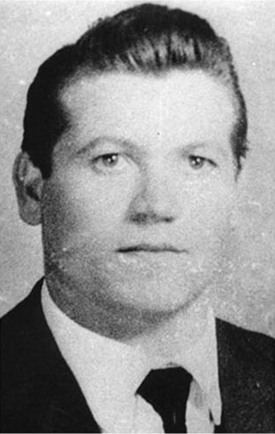
Bernardo Provenzano was an Italian mobster and chief of the Sicilian Mafia clan known as the Corleonesi, a Mafia faction that originated in the town of Corleone, and de facto the boss of bosses. His nickname was Binnu u tratturi because, in the words of one informant, "he mows people down". Another nickname was il ragioniere, due to his apparently subtle and low-key approach to running his crime empire, at least in contrast to some of his more violent predecessors.

Giuseppe "the Clutch Hand" Morello, also known as "The Old Fox", was the first boss of the Morello crime family and later top adviser to Giuseppe "Joe the Boss" Masseria. He was known as Piddu and his rivals the Castellammarese knew him as Peter Morello. He was famous for having a one-fingered deformed right hand that resembled a claw.

Giuseppe Venanzio Marvuglia was an Italian architect.

The Fasci Siciliani, short for Fasci Siciliani dei Lavoratori, were a popular movement of democratic and socialist inspiration that arose in Sicily in the years between 1889 and 1894. The Fasci gained the support of the poorest and most exploited classes of the island by channeling their frustration and discontent into a coherent programme based on the establishment of new rights. Consisting of a jumble of traditionalist sentiment, religiosity, and socialist consciousness, the movement reached its apex in the summer of 1893, when new conditions were presented to the landowners and mine owners of Sicily concerning the renewal of sharecropping and rental contracts.
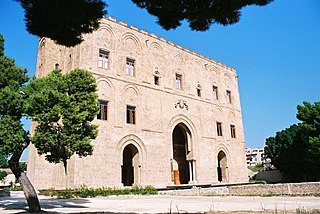
The Zisa is a grand 12th-century Norman hunting lodge and summer palace in the western area of Palermo, region of Sicily, Italy. The edifice was begun around 1165 by Arab craftsman under the rule of the Norman conqueror of Sicily, king William I of Sicily. It was not finished until 1189, under the rule of William II. It is presently open to the public for tours.
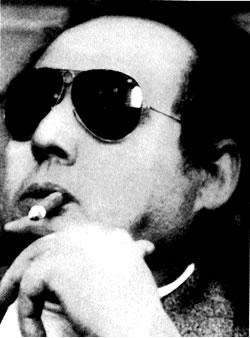
The Corleonesi Mafia clan was a faction within the Corleone family of the Sicilian Mafia, formed in the 1970s. Notable leaders included Luciano Leggio, Salvatore Riina, Bernardo Provenzano, and Leoluca Bagarella.

The Viale Lazio massacre on 10 December 1969 was a settling of accounts in the Sicilian Mafia. Mafia boss Michele Cavataio and three men were killed in the Viale Lazio in Palermo, Sicily, by a Mafia hit squad. The bloodbath marked the end of a pax mafiosa that had reigned since the Ciaculli massacre until the end of the Trial of the 114 against Cosa Nostra.
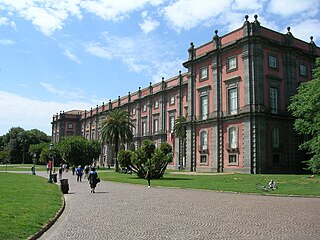
The Royal Palace of Capodimonte is a large palazzo in Naples, Italy. It was formerly the summer residence and hunting lodge of the Bourbon kings of the Two Sicilies, one of the two royal palaces in Naples. Today, it comprises the National Museum of Capodimonte and the Royal Forest. The palace was constructed on its somewhat cooler hilltop location just outside the city, with urban Naples ultimately expanding around it.

Salvatore Riina, called Totò, was an Italian mobster and chief of the Sicilian Mafia, known for a ruthless murder campaign that reached a peak in the early 1990s with the assassinations of Antimafia Commission prosecutors Giovanni Falcone and Paolo Borsellino, resulting in widespread public outcry and a major crackdown by the authorities. He was also known by the nicknames la belva and il capo dei capi.

Bernardino Verro was a Sicilian syndicalist and politician. He was involved in the Fasci Siciliani, a popular movement of democratic and socialist inspiration in 1891–1894, and became the first socialist mayor of Corleone in 1914. He was killed by the Mafia.

Rocca Busambra is the highest peak in the Monti Sicani, in western Sicily, southern Italy. It has an elevation of 1,613 metres (5,292 ft).
The Inzerillo Mafia clan is a Sicilian Mafia clan, formerly among the most powerful in Sicily, for at least half a century they were considered the "aristocracy of Palermo's mafia".
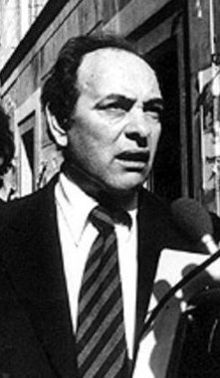
Mario Francese was an Italian crime reporter of the Giornale di Sicilia. He was the first journalist to expose the role of Toto Riina and the Corleonesi within the Sicilian Mafia, and because of this he was killed on 26 January 1979. After 22 years, in 2001, those who had decided to eliminate him were convicted.

The Royal Palace of Ficuzza, also named Reggia or Real Casina di Caccia of Ficuzza is located near the town of Corleone, located some 45 kilometers from Palermo, Sicily. It was commissioned by Ferdinand IV of Naples and III of Sicily during his exile in Sicily starting after the establishment of the Parthenopean Republic in 1798.
Zwackhiomyces echinulatus is a species of lichenicolous (lichen-dwelling) fungus in the family Xanthopyreniaceae. Thus fungus exclusively colonises the lichen species Physconia distorta. This fungus is notable for specific structural features that distinguish it from other members of its genus, and for its niche habitat found only in particular regions of Sicily, Italy.
